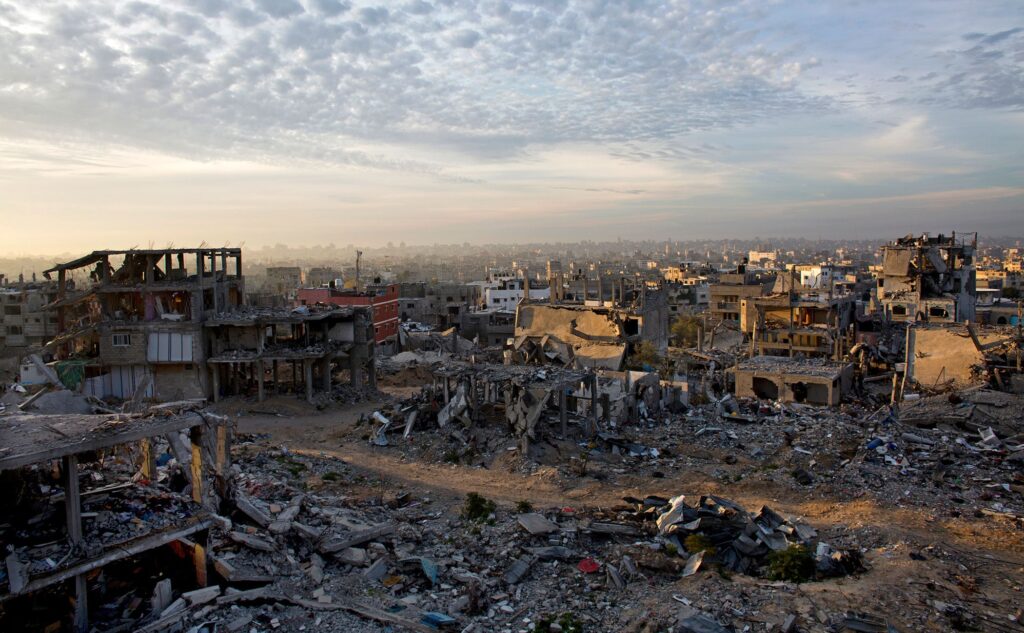
Multiculturalist Ideology (Part One): A Rationale For Race War Politics
An Examination Of The Logic of Multiculturalism

An Examination Of The Logic of Multiculturalism

There is much speculation as to what kind of rule Gaza will experience after Israel has finished wiping out Hamas. A favoured option for Western countries is to stick with the supposed ‘two state solution’. This is despite the fact that there are three geographical entities: Israel, Gaza, and the West Bank.
One revelation for a disinterested Western public after the 7 October atrocities was to be told that an elected West Bank politician was in the sixteenth year of his four year term. Democracy had fallen by the wayside, and no one wanted to do anything as in an election it was expected that Hamas would win. Tolerating a less bloodthirsty corrupt authority was the lessor of two evils.
In Gaza, Hamas were elected into power and promptly disposed of both democratic elections and the opposition (sometimes by throwing them from a rooftop). Of importance, is that Hamas were voted into power, and the Gazan population tolerated the firing of rockets into Israel, the indoctrination of children in the schools, the building of a vast network of tunnels, and the general corruption used to fund the Hamas state.
The Gazans knew what they were voting for. Given the opportunity, they will vote for Hamas MKII. As will the West Bank.
A casual glance across the various Muslim states across North Africa and the Middle East reveals that they are almost all either dictatorships (monarchies or military), or else are failed states or brutal war mongering ones. The monarchies include Morocco, Jordan, Saudi Arabia, Oman (a British ally) and the United Arab Emirates. Some of these monarchies are fundamentalist Muslim, but they all keep their populations under control. In other countries, such as Algeria and Egypt, the military intervened to stop a fundamentalist takeover. Failed states include, Libya, Sudan, Somalia, Yemen, and Gaza. Iran is a good example of a warmongering Islamist state.
Lebanon used to be a Christian majority country, but the influx of Palestinian refugees and different birth rates turned it into a Muslim dominated failed state after years of civil war. It should not be forgotten that the Syrian army intervened in support of the Christians in that civil war. Syria is a dictatorship that has struggled to fend off a jihadist uprising. Neighbouring Iraq is a corrupt democracy that has likewise struggled to defeat the fundamentalists.
Tunisia is the only properly functioning democracy (apart from Israel) in the region, and it has had serious troubles of its own and was the source of the Arab Spring. To the south in Africa a variety of states are struggling to contain fundamentalist Islam.
Turkey is a perfect example of the power of culture. The Turks were the rulers of the Ottoman empire. Not even after five centuries could the Ottoman empire forge an Ottoman nation out of the empire’s various peoples and religions.
Turkey was keen to develop its Western status following the end of the Ottoman empire, adopting ‘western culture, nationalism, secularism and republicanism’. Kemel Ataturk introduced sweeping reforms including the abolishment of the Islamic caliphate, legal reforms, women’s rights, the Latin alphabet, and new dress codes, as well as educational, political and economic reforms including a firm commitment to being a secular state despite an overwhelming Muslim population. The view of the Turkish elite could be summarised: ‘Civilization is the European civilization. There is no other one.’
The Turkish military, time and again, had to step in and prevent fundamentalist Muslims getting elected, or kicked them out once they were elected and not adhering to secularism. Recep Tayyip Erdogan was one of those fundamentalists who got banned. Even so, over one century, Turkey’s Kemalists could not embed a secular society that would survive the instinct to vote for Islamist politicians, such as Erdogan. Once the military lost its veto, via a constitutional court, then the fundamentalists swarmed through to take power (we have the EU to thank for this as it insisted that the military lost its political role as a part of Turkey’s accession conditions).
Despite living in European countries for many years, and decades, and being surrounded by Western culture, the Turks in those European countries supported and voted for the Islamist Erdogan. Despite one century of imposed secularism, Turkey involved itself in the Syrian civil war to support the bloodthirsty barbarists of ISIS. Opinion polls in Turkey showed most Turks did not see ISIS as a major threat. An opinion poll in August 2014 revealed 11.3 per cent of Turks, or nine million people, did not regard ISIS as a terrorist organisation.
Across Muslim countries, the various publics support extremism, be it Sharia or voting for extremist politicians.
It would help if, instead of playing along with the Muslim victimhood clamour, the West gave them the hard word: it is not acceptable to support savagery such as the 7 October atrocities and if Muslim voters do so, then they will get what is coming to them.
Simply bleating about wanting a two state solution does not address the problem of the Muslim instinct for voting for extremists and supporting extremism.